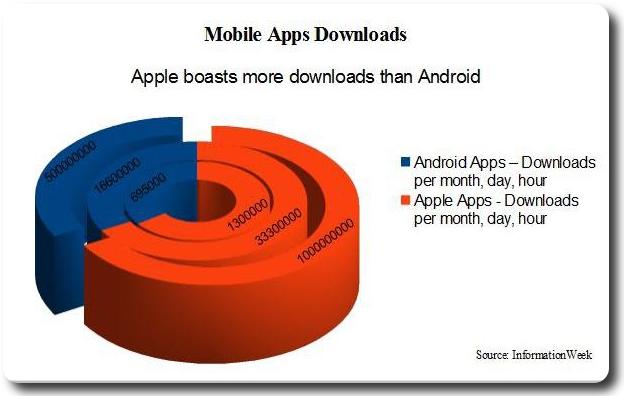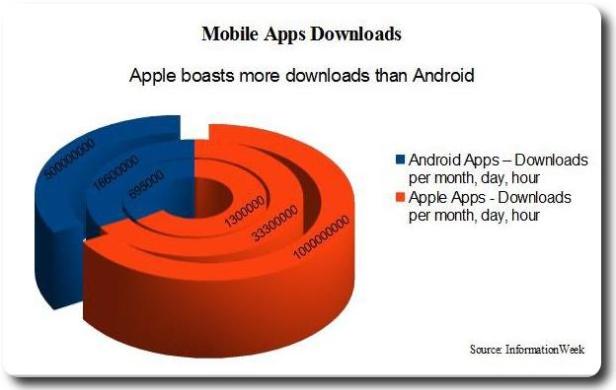Never underestimate the power of Google analysts warn, adding that Apple is performing even better in the growing mobile applications market. Apple’s App Store managed to distribute about 1 billion downloads per month in the past half a year while Google’s Android smartphone users are downloading a “meager” 500 million applications a month, according to Information Week.
Hence, Apple fans are downloading 33.33 million apps daily compared to 16.66 million apps downloaded by Android users. It means that 193 apps per second are downloaded from Google’s servers with Apple users downloading 386 apps per second.
Android and Apple apps are the most widespread and popular applications utilized by handset users and numbers clearly show that Apple leads the pack. However, numbers are somewhat misleading for Apple users tend to download more applications just for fun while Android users utilize their hand-held devices’ ability to run mobile apps in a more practical manner.
Analysts agree that recent data resembles stats published a couple of years ago which indicates unexpected market behavior by both users and developers. Users can be excused for their bullheadedness while developers, especially those working on Android apps, should focus on developing more attractive and user-admired apps. In the meantime, Apple boasts good mobile apps download rate although many experts believe the numbers are distorted for various reasons not related to the company itself.
Anyway, we witness an interesting trend which is even more intriguing if we take into account the huge potential of Chinese market for mobile apps. China’s market is probably underdeveloped in terms of genuine devices used in the country but despite its obscurity it bears undeniable potential for mobile apps are running even on fake or non-branded smartphones. Moreover, Beijing rulers are smart enough not to control the use of such devices entirely while encouraging imitation of smatphones is not an official policy but a kind of deal between the government and local entrepreneurs.

